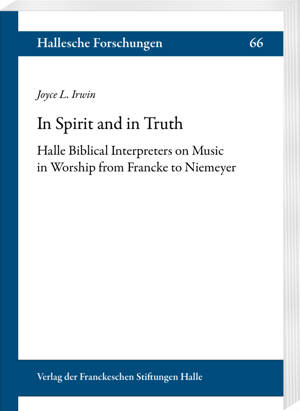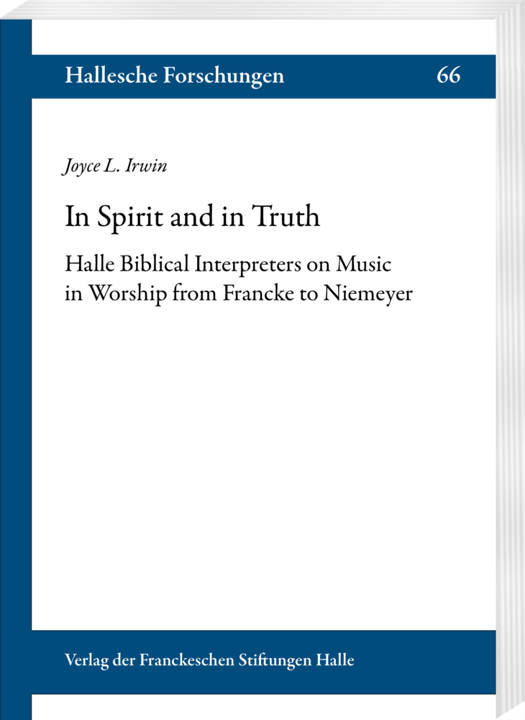
- Afhalen na 1 uur in een winkel met voorraad
- Gratis thuislevering in België vanaf € 30
- Ruim aanbod met 7 miljoen producten
- Afhalen na 1 uur in een winkel met voorraad
- Gratis thuislevering in België vanaf € 30
- Ruim aanbod met 7 miljoen producten
Zoeken
In Spirit and in Truth
Halle Biblical Interpreters on Music in Worship from Francke to Niemeyer
Joyce L Irwin
€ 130,95
+ 261 punten
Omschrijving
Pietism was repeatedly confronted with the accusation that it was hostile to art. In the late 17th century, for example, ornate church music met with criticism from many Pietists. At the same time, they appreciated music as an important component of public worship, which should deepen the piety of the converted and appeal to the hearts of the unconverted. However, this was preceded by the conviction that the criterion for appreciating music was to be found in the faith convictions of the composer and performer themselves. This tension underlies the musical thinking of Halle's theologians in the 18th century. The study by Joyce L. Irwin refrains from dealing with polemical literature in the environment of Pietism, but rather draws on texts that treat passages of the Bible dealing with music.In addition to the biblical commentaries of August Hermann Francke, Joachim Lange, Johann Jakob Rambach, Siegmund Jakob Baumgarten, and Johann Salomo Semler, poetic texts also come into view, such as the hymnals of Freylinghausen, the poems of Rambach, and the poetry and drama of August Hermann Niemeyer. In the process, it becomes apparent that music in Pietism is essential for the service to God, but that the spiritual conviction of the individual remains crucial.
Specificaties
Betrokkenen
- Auteur(s):
- Uitgeverij:
Inhoud
- Aantal bladzijden:
- 248
- Taal:
- Engels
- Reeks:
- Reeksnummer:
- nr. 66
Eigenschappen
- Productcode (EAN):
- 9783447120982
- Verschijningsdatum:
- 15/03/2024
- Uitvoering:
- Paperback
- Formaat:
- Trade paperback (VS)
- Afmetingen:
- 158 mm x 13 mm
- Gewicht:
- 961 g

Alleen bij Standaard Boekhandel
+ 261 punten op je klantenkaart van Standaard Boekhandel
Beoordelingen
We publiceren alleen reviews die voldoen aan de voorwaarden voor reviews. Bekijk onze voorwaarden voor reviews.







